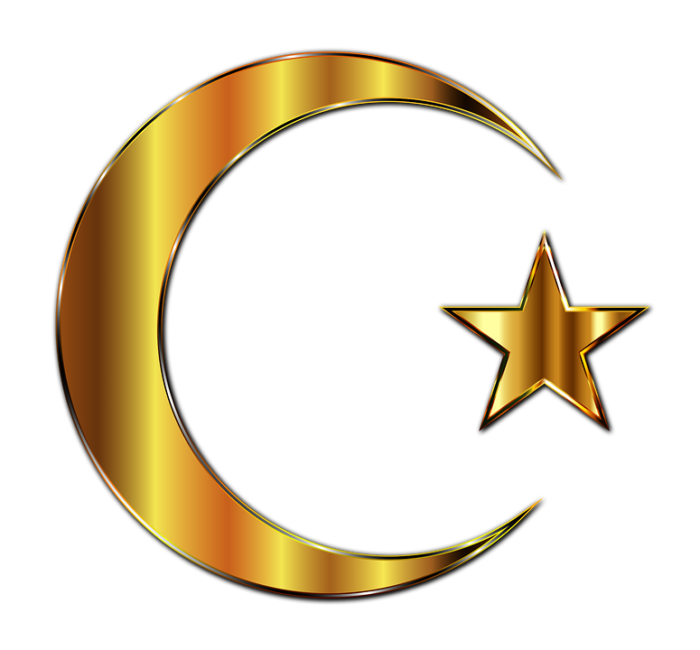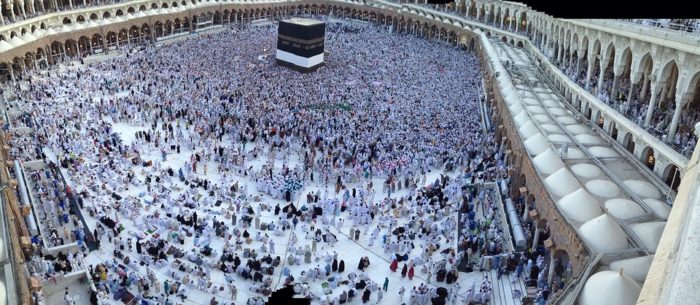By Fatoumata Drammeh
Islamophobia has become a serious and growing problem in non-Muslim nations today. Intolerance and aggression towards Muslims in and outside of the United States can be seen through many incidents of cultural bigotry, and if we look at how countries like France are treating their Muslim citizens now, it feels like things are only getting worse. There are a lot of misconceptions about not only Muslims but Islam as a whole. It’s unfortunate that some bad apples who commit acts of terrorism in the name of Islam, suddenly represent the entire religion and all its followers.
It’s even more sad when it’s forgotten that these acts of violence have also targeted and harmed Muslims as well. With a political climate in which Hijabi’s are unlawfully stripped down and sexually harassed at airports. Muslims are being stabbed and unfairly profiled, yet terrorist attacks against Muslims and mosques aren’t given the same energy of shock and outrage as attacks on non-Muslims. The news media plays a huge role in encouraging Islamphobia, mostly by judging Muslims and Non-Muslims according to a double standard. Whenever a foreigner commits an act of terrorism in the U.S. it’s called terrorism but whenever someone who is not Muslim or who is white commits an act of terrorism they are immediately presented as someone suffering from a bad upbringing and/or a mental illness. Their religion won’t be mentioned when reporting about them, despite the fact that religious motives can be involved in non-Islamic attacks as well. The main point is, Muslims as a whole have been demonized, which has contributed to the mistreatment and dehumanization of them that we see also going in parts of China, Russia, and India right now. In China, Muslims are being trapped in the equivalent of concentration camps, and the brutality they are facing is largely being ignored.
Similarly, discrimination against Black people in the U.S. and elsewhere, has been an alarm that’s been ringing for centuries! Black individuals are still being racially profiled and murdered unfairly with no justice whatsoever. We see double standards in their treatment not only by cops but also by the legal system, the education system and healthcare systems. Socially, people still perpetuate anti-blackness and hold negative stereotypes about black individuals that they pass on to their kids. Black communities continue to struggle every which way, but it seems that no matter who is running the world, or how much time passes, things aren’t really changing.
Both groups—blacks and Muslims— live in constant fear for their lives and are subjected to cruel treatment. Now imagine the people who belong to both these worlds? Black Muslims exist. It’s still odd to me that a good amount of people don’t know this, and are shocked when they meet one. It’s a harmonious and enriching combination that comes with double the struggle. But this unique cultural blend is often forgotten or not acknowledged.
To reiterate, black Muslims exist and always have. In fact they were the very first Muslims to arrive in the United States. All analysts agree that the first trans-Atlantic migration of Muslims consisted of African slaves. However, due to the religious intolerance of the time, Muslim slaves who tried to preserve their religion were forced to convert to Christianity. Nonetheless they were first Muslims here and historically they’ve also played a important role in the growth and evolution of Islam. From the time of the Prophet ﷺ until today, bLack and African Muslims have played an important role in the ummah. Since racism also existed at the time of the Prophet ﷺ, he frequently placed black Muslims in important positions due to their innate virtues and to systematically empower them. (Dr. Hussain Lateef). Islam doesn’t promote racism, and as Muslims we should reflect on the way of the prophet. However, as a black Muslim, I can say not only must I deal with Islamophobia, but I also experience and deal with racism—not only from other groups, but from my own fellow Muslims.
Growing up as a Muslim I’ve had my fair share of harassment and constant fear. Being called a “terrorist” despite the fact that I wouldn’t even kill a fly, was both upsetting and humorous to me. Having to listen to classmates and other people berate Muslims and spread misconceptions about us was the norm. I’ve grown up seeing my friends and cousins who wore the hijab being shouted at to take it off, and even having it forcibly yanked off the top of their heads. After Trump won, my cousin’s housemates immediately started spouting anti-Muslim rhetoric. Eventually they jumped her while telling her to go back to “her country,” despite the fact that she was born here. It is a common misconception that Muslims can’t be native to America. An American-born Muslim’s “Americanness” tends to be invalidated or assumed to not be there at all.
Imagine how strange it was to grow up seeing negative or improper perceptions of Muslims in movies and tv shows, or anti-Muslim marches and people actively pushing anti-Muslim rhetoric. I was scared whenever my phone would notify me that it was time to pray. The Quran would be heard for a second before I’d quickly shut it off on the train because of the looks I’d get. I remember being at McDonald’s with my other Muslim friends and having a nearby bunch of kids scream “Allahu-akbar” while throwing fries at us. I’ve grown up seeing my fellow Muslims being killed at mosques, or having their countries bombed and their lives taken, and it seemed that no one cared. This didn’t lead to resentment within me, but it was saddening. I didn’t understand why everyone couldn’t coexist. I didn’t understand why I was being blamed for the actions of others. I didn’t understand how the hijab could prompt such aggression and brutality from someone. I still don’t, but you become desensitized to it after a time.
One thing I always had to cope was the misconception or assumption that as a female I’m oppressed and forced to follow Islam. I’m not forced to be a Muslim, and I’ve chosen to follow Islam. I am not a terrorist. Being a Muslim doesn’t make me some monster or change who I am. However, my also being black simply added to my troubles as a Muslim because I had to face discrimination not only outside but within the Muslim community as well. I had to steel myself against verbal abuse from both sides. I had to face microaggressions about my skin or my hair, and being “African” because my ancestral background was constantly attacked as I was called an “African booty scratcher.” Despite the fact that black Muslims are just as Muslim as anyone else, generally we are still looked down upon. For me, such disregard came most often in the form of greeting fellow Muslims in the street—as we generally do—but getting ignored while my friend (who has a more “stereotypical” Muslim look) was not.
Routine micro aggressions took the form of passive-aggressive comments about black Muslims from students in my school at the time. They also came in the form of being questioned about everything as if I need to pass some test to prove I’m Muslim. I became the main target of continuous questioning by all kinds of people, as if I’d committed the “crime” of being black and Muslim at the same time. I had to endure people saying “No way, you can’t be Muslim,” then when I ask them why, some might have the decency to awkwardly laugh, while others just say outright, “’Cause you’re black.” I’ve had friends who could not be friends with me because I’m black, and because their parents didn’t want them around “those type of people.” This attitude did not change when it came to the parents of some of my fellow Muslims either.
There’s also an additional double standard when it comes to black Muslims. An example of this double standard is what transpired on Tik Tok recently that led to a full out media war between Somali and Arabic Muslims. A young black woman used her braids to imitate the hijab, and was attacked. Now if hijabis felt upset, that is fine, but I have never seen such vicious, hurtful name-calling in my life. The amount of insulting slurs, microaggressions, and racism filling that comment section was disgusting, and forced the young woman off the internet for a while. The hostile “I don’t support BLM” and “This is why your people are being killed” remarks reflecting the anti-blackness of fellow Muslims, really popped out. Thinking about all the black individuals and the black Muslims who had to read all that, breaks my heart. The hypocrisy of the woman’s attackers was even more apparent when they simply used her video as a scapegoat for their racism. These same people routinely hype up videos of light-skinned Muslims who might mock the hijab in their skits for comedic purposes, and yet not one hateful comment or racial slur ever gets sent their way. It had nothing to do with the hijab for a lot of these people. On the other hand, although I haven’t experienced this very often, I know that Islamophobia and negative stereotypes can also come from our black American counterparts, and knowing this adds to the pain of experiencing these things.
For black Muslims their ethic background and identity opens into another space where they have tried ten times harder to be accepted and still don’t feel like they belong. It’s painful because skin color shouldn’t matter, and it’s painful because someone’s religious beliefs shouldn’t attract hatred from others. However, black Muslims have to deal with the problems that arise from being proud of everything that they are.
Don’t get me wrong though. Not every non-black Muslim is racist, and not every non-Muslim black person is Islamophobic either. I’ve met many amazingly tolerant people on both sides. But it’s the bigoted minority that should not exist, and unfortunately I’ve had to encounter it here and there. Furthermore, Muslims around the world have shown immense support and solidarity for Black Lives Matter, and are very open minded. In my experience, they’ve been some of the most amazing people in my life. I am so blessed and happy to be both Black and Muslim. It’s a key part of my identity and I love it. I love it so much that I would never have it any other way. I love the fact that I have two communities to fall back on with dope people! I love that both identities broaden the friendships I can make, and the people I can connect with. I feel I get the best of both worlds! I get Eid, plus my own Gambian holidays! Then add on the extra knowledge and enriched culture! I wouldn’t have it any other way, but I do wish that people would be more sensitive to black Muslims, and stop adding to the problems we’re already experiencing. I hope all people begin to realize that you cannot support Black Lives Matter if you’re Islamophobic . . . and that you are going against the ways of Islam and hurting fellow Muslims by embracing racism.

